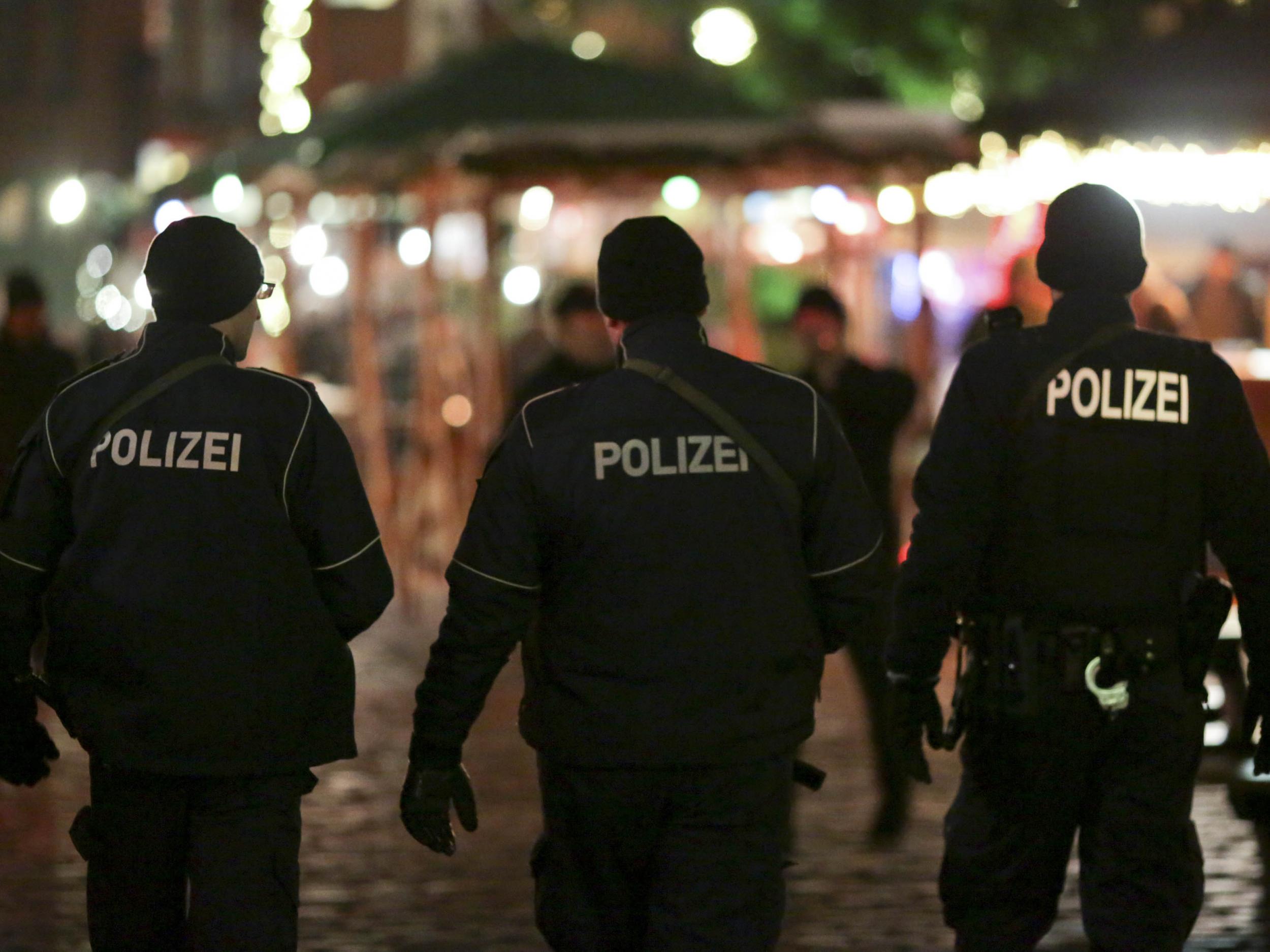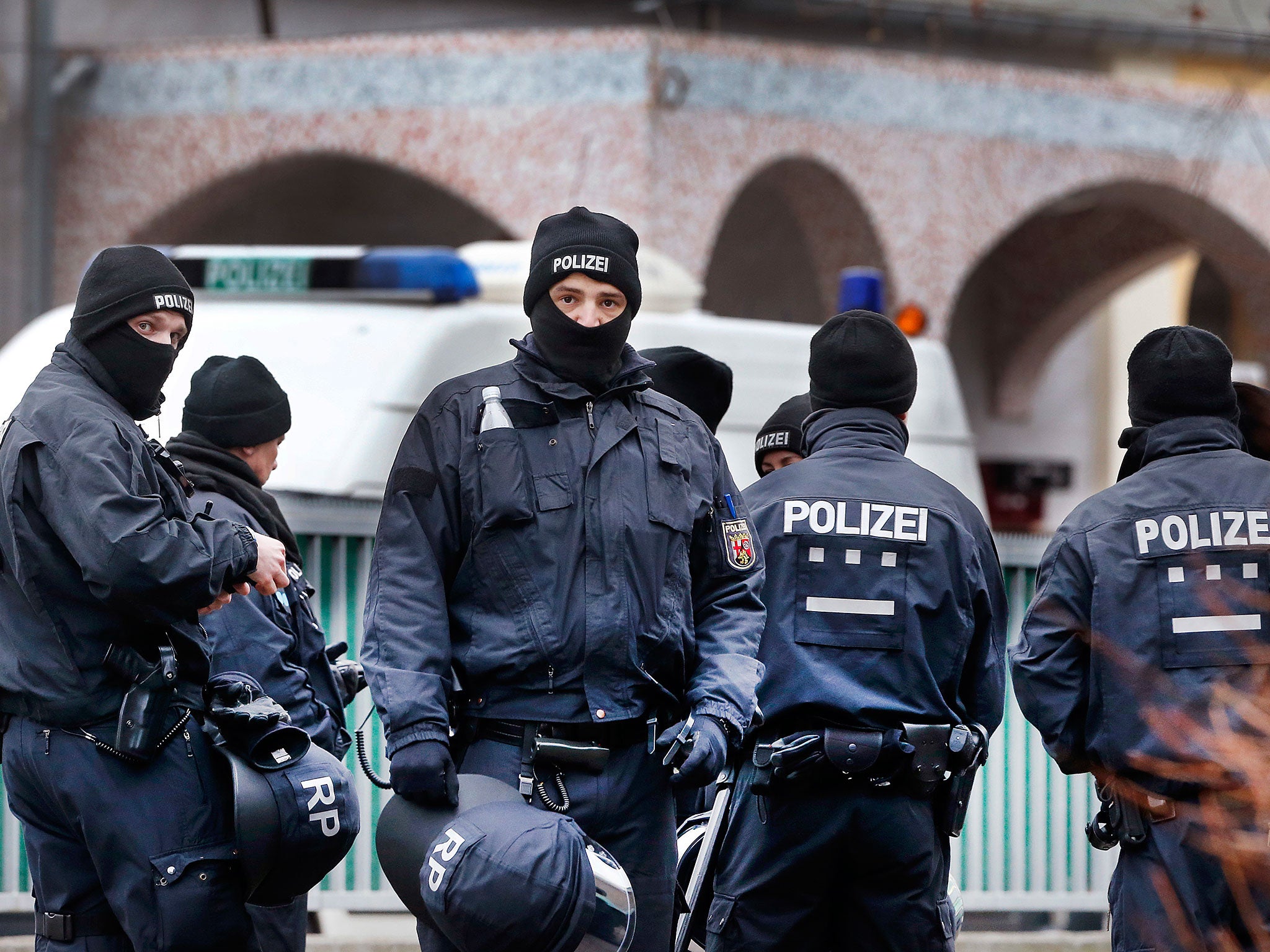Germany plans to electronically tag suspected terrorists amid concern over security failures after Berlin attack
Government stepping up security reforms following failures leading up to Berlin attack

Your support helps us to tell the story
From reproductive rights to climate change to Big Tech, The Independent is on the ground when the story is developing. Whether it's investigating the financials of Elon Musk's pro-Trump PAC or producing our latest documentary, 'The A Word', which shines a light on the American women fighting for reproductive rights, we know how important it is to parse out the facts from the messaging.
At such a critical moment in US history, we need reporters on the ground. Your donation allows us to keep sending journalists to speak to both sides of the story.
The Independent is trusted by Americans across the entire political spectrum. And unlike many other quality news outlets, we choose not to lock Americans out of our reporting and analysis with paywalls. We believe quality journalism should be available to everyone, paid for by those who can afford it.
Your support makes all the difference.The German government is planning to electronically tag jihadis amid outrage over revelations another suspected Isis supporter was set free by authorities.
More than a thousand police officers raided homes, mosques and businesses in the state of Hesse, but the huge operation resulted in the arrest of only 16 suspects, including a man who had been on security services’ radar for years.
The 36-year-old Tunisian, Haikel S, is a suspected Isis recruiter and smuggler linked to at least two terror attacks in his home country, as well as leading a German extremist network planning an attack.

Police hailed his arrest on Wednesday but there was a swift backlash over revelations that like the Berlin Christmas market attacker, he was known to authorities and an attempt to deport him had failed, forcing him to be released from detention.
Germany’s cabinet has addressed proposals to better keep track of potential extremists, approving a law allowing the “fundamental modernisation of police IT systems” to improve information sharing.
The measures include the use of ankle bracelets to monitor anyone deemed to be a security threat who has been put under restrictions by the Federal Criminal Police Office.
Thomas de Maizière, the interior minister, said the electronic tags would help “control their compliance”.
“Ankle bracelets are an important instrument to facilitate the surveillance of dangerous people,” he added.
German security services have a list of more than 550 Islamists considered “threats to public security” who have lived or currently reside in Germany.
Johannes Dimroth, a spokesperson for the interior ministry, declined to speculate how many suspects might now face electronic monitoring.
“How many of them could in the future be affected by such a measure is a purely hypothetical question,” he told reporters in Berlin.
The proposal still has to be approved by the German parliament, where there could be resistance from MPs opposing the tracking of people who have not been convicted of a crime.
Germany’s government is following up on promises of reform following a litany of security failures exposed in the wake of the Berlin Christmas market attack.
Anis Amri, a failed Tunisian asylum seeker, killed 12 people months after a delay receiving paperwork from his home government ended Germany’s attempt to deport him.
He had been put under surveillance over a separate alleged terror plot but monitoring was stopped in September after officials uncovered drug dealing and minor crime but failed to reveal evidence of extremism.
Amri managed to flee through European countries including the Netherlands, Belgium and France amid an international manhunt following his attack, before being shot dead when he opened fire on police in Italy.
Investigations continue into his possible associates in Germany, with three terror suspects accused of planning to join Isis in Syria or Iraq arrested at his former mosque in Berlin on Tuesday.
Amri’s attack sparked a 10-point plan by the government to tackle terror, including the tightening of residence requirements for migrants who give false identities, fast-tracked deportations and the detention of rejected asylum seekers who are deemed a threat.
Other measures include increased surveillance, the recording of air traffic data to track movement within the EU and improved information sharing.
They come after a string of Isis-inspired terror attacks in Germany that started with a teenage girl’s stabbing of a police officer at Hanover railway station in February last year.
It was followed by the Würzburg train attack, a suicide bombing in Ansbach and the Berlin Christmas market attack, which were all claimed by Isis.
Anti-immigration groups have seized on the atrocities to criticise Angela Merkel’s decision to open Germany’s border to Syrian refugees during the height of the refugee crisis in 2015.
The Chancellor is battling to be re-elected for a fourth term amid opposition from the right-wing populist Alternative for Germany party, which has enjoyed unprecedented success in local elections.
Join our commenting forum
Join thought-provoking conversations, follow other Independent readers and see their replies
Comments